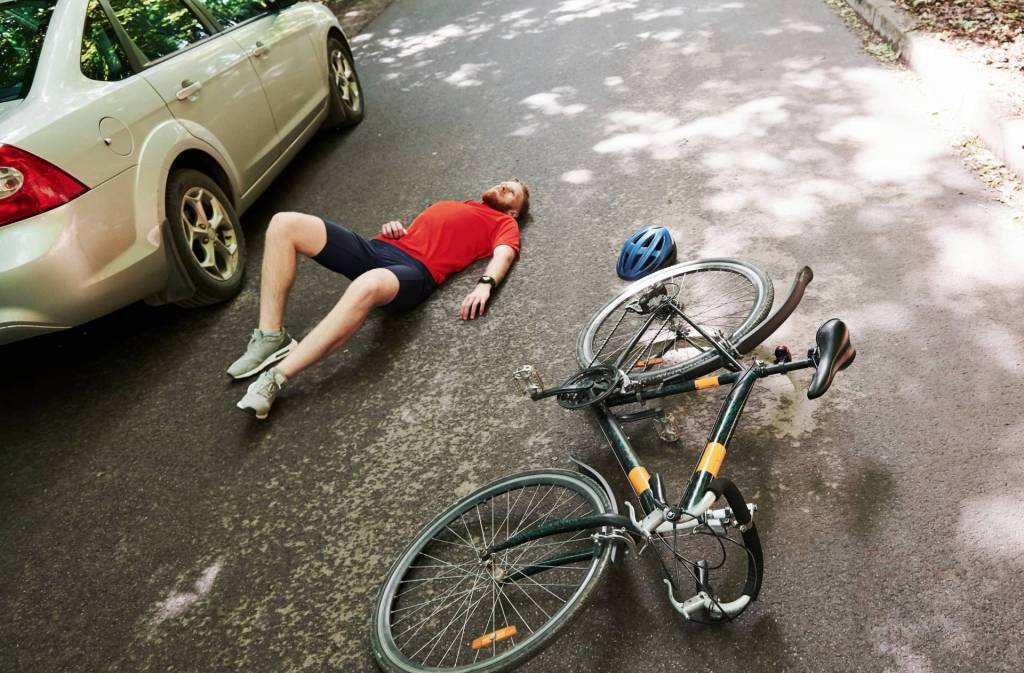Being in a car or truck crash can be a frightening and stressful experience. But there are a number of important things that you need to remember to do if you have been involved in an accident.
Health and Safety First
The heath and safety of you and your passengers should be your first concern after a car or truck crash. Make sure that the immediate medical needs of you and your passengers are addressed properly and thoroughly.
Injuries That Look Minor Can be Serious
Car and truck accidents can cause relatively minor injuries like muscles strains or sprains. But even relatively low speed collisions can cause serious injuries like broken bones, spinal cord injuries, concussions or serious brain injuries and/or internal bleeding or organ damage. You need to know what can be done to discover and treat “hidden injuries”.
Call for Help
Once the immediate medical needs of you and your passengers have been attended to, you should dial 911 and ask for emergency medical attention to be sent to your location. If not one has been injured you should alert the local police or RCMP of the accident.
Collect the Facts
Take time to collect as much information as you can from anyone involved in the accident and anyone that may have witnessed what happened.
This includes:
- The full name, address, driver’s license number, and insurance information for any of the drivers involved in the accident. You should provide the same information to them.
- Contact information from any passengers and witnesses.
- Write down detailed information about each car involved in the accident, including the make, model and color of the vehicle. Make sure you write down the license plate number for every vehicle involved in the accident.
- Draw a quick sketch of the accident scene where all the vehicles were and what direction they were traveling in when the accident happened.
- Get the first and last name, badge number and incident number from any police officers that attend at the scene of the accident.
- Take photographs. These days pretty much everyone carries a cell phone and most cell phones have cameras. Make sure you take several pictures of the accident scene, and damage to the vehicles. Be sure to take pictures of any skid marks and close up pictures of any and all damage to the vehicles.
When the Ambulance Arrives
Explain Your Medical History: If you have been injured in a car or truck accident and you are being treated by ambulance attendants or paramedics make sure you tell them about any relevant medical history or ongoing medical conditions you have that may effect your treatment. For example, if you have a heart condition, are taking blood thinners or any other medications that might react with the medication that emergency room physicians may prescribe.
Cooperate With Paramedics and ER Doctors: If you are taken to the hospital emergency department you should cooperate with the paramedics and doctors. Allow them to conduct whatever medical tests they think are necessary.
Wait for Treatment: Sometimes accident victims are embarrassed and don’t want to “be a bother” to anyone. Sometimes you may have to wait in the emergency department before receiving treatment. You may be tempted to leave without getting proper medical attention. Not only can that hurt you if you decide to file a claim for compensation, it can also have potentially life threatening consequences if you have suffered a serious injury and don’t receive proper medical attention.
The Days After the Car Accident
There are a number of things that you should do in the days immediately following your car or truck accident.
See your Family Doctor: Generally speaking, even if you do not think that you have suffered a serious injury, it is a good idea to make an appointment to see your family doctor as soon as possible after a car or truck accident. There are certain types of injuries that may not be obvious in the hours after a car accident. For example, the signs and symptoms of minor traumatic brain injury are very subtle. These symptoms may be missed by ambulance attendants or doctors in a busy emergency department. Your family doctor will be able to identify and document the symptoms to show that they were present shortly after the car accident.
Take Your Doctor’s Advice: The most important thing to remember if you have been injured in a car or truck accident is to follow the advice of your treating physicians and heath care professionals. Failing to attend medical appointments, physiotherapy appointments, not taking your medication or simply not following your doctor’s advice can have serious and long term consequences. It also can jeopardize your right to receive full and fair compensation if you decide to pursue a compensation claim.
Contact Your Insurance Company: As soon as possible after the accident call your insurance agency to tell them that you were involved in a car accident. Explain what happened and ask them to send you a claim form package.
Learn Your Rights! Changes to Nova Scotia’s Insurance Act (the law that governs car insurance) significantly limits the rights of innocent car and truck accident victims. The law places restrictions on the amount and type of compensation that innocent victims are entitled to receive.
Know What’s Covered: There is a standard form automobile insurance policy in Nova Scotia but most people don’t know what they are actually covered for if they have been in a car accident. Here is an article about the basics of motor vehicle insurance coverage in Nova Scotia.
Write Down the Facts: After you get home sit down and write out, in as much detail as possible, everything that you remember about the accident. How it happened. What was said to you by anyone involved in the accident or any of the witnesses to the accident. Be sure to include details regarding the date and time, the weather, the road conditions and anything else that might be relevant to the accident. Keep in mind that it may be months or even years after the accident before you are questioned about what actually happened and memories fade with time.










